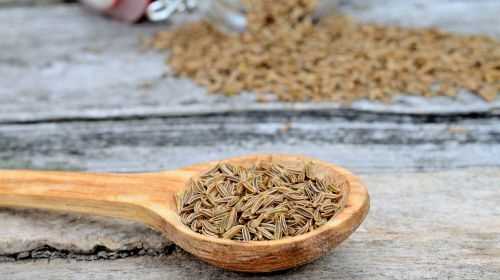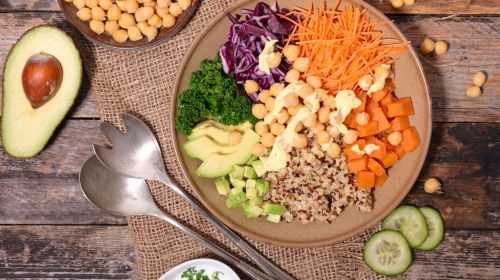Author: Pascale Huber, medical editor | Monika Preuk, medical writer
Last updated: August 18, 2021
Flatulence is the excessive accumulation of gases in the intestines. Read here what causes flatulence to develop and what works against it.
They are sometimes loud and often smell unpleasant: gas (flatulence) may seem embarrassing, but everyone has it every now and then, whether young or old. However, some people also constantly suffer from flatulence, which then also affects their well-being and health.
Article content at a glance:
Why does flatulence develop?
The fact that intestinal gases form during digestion is initially not a health problem, but completely normal. If, however, large amounts of gas develop in the intestine, these inflate the stomach considerably – this is called a bloated stomach (meteorism). Abdominal pain and a feeling of fullness are the consequences.
Even if most people find it uncomfortable – those who constantly suffer from flatulence should have this checked out by a doctor. In many cases, the causes of the gas and abdominal pain are harmless, but sometimes the cause of the flatulence requires targeted treatment. Anyone who has flatulence very often should therefore seek help from a family doctor or internal medicine.
Gas formation in the intestine
But how is the air actually formed in the stomach? After the chewed food reaches the small intestine via the stomach, various digestive enzymes break down the individual food components such as proteins, fats and carbohydrates.
This chemical crushing is necessary so that the nutrients can be absorbed into the blood through the intestinal mucosa. In addition, many intestinal bacteria participate in digestion, which can lead to fermentation processes. Gases such as carbon dioxide, hydrogen, methane and sulfur compounds are produced as metabolic waste products.
While some of the carbon dioxide enters the bloodstream through the intestines and is eventually released with breathing, most other gases have to pass through the intestines before they exit through its natural outlet. Small amounts of gas also accumulate in the intestines of every healthy person, but they do not cause any complaints if the digestive system is intact.
Causes: Triggers flatulence
Flatulence can have very different causes. Many people eat very quickly under stress and time pressure and swallow a lot of air as a result. In medicine, this phenomenon is also known as aerophagy. In addition to flatulence, a bloated stomach and abdominal pain, there is then frequent belching and a feeling of fullness.
Certain foods are among the natural causes of gas. Most people react to various types of cabbage (such as savoy cabbage, Brussels sprouts, sauerkraut) as well as onions and legumes such as lentils, peas or beans with flatulence.
In addition, high-fat foods and so-called sugar substitutes (sweeteners), such as those contained in many diet and light products, can bloat the stomach if consumed in excess. However, whether someone reacts to such foods with abdominal pain and digestive problems such as gas varies greatly from person to person.
Food intolerances play a major role
In some people, form due to a food intolerance increased intestinal gases. Common forms are for example:
Lactose intolerance: The cause of milk sugar intolerance is a deficiency in the enzyme lactase, which breaks down milk sugar (lactose). The lactose is fermented by intestinal bacteria, which leads to increased gas formation. Since lactose binds water in the intestine, lactose intolerance also causes diarrhea. The complaints are always related to the time they eat.
Fructose intolerance: Affected people can only absorb limited amounts of fruit sugar (fructose) through the intestines. The remainder in the intestine leads to fermentation processes and also binds more water. Flatulence, diarrhea and abdominal pain are the consequences.
Celiac disease (gluten intolerance): Gluten is a so-called gluten protein in many types of grain. In people with celiac disease, the lining of the intestines reacts to gluten with inflammation. The term intolerance is imprecise in celiac disease, rather immunological processes play a role.
In addition, the following causes are possible with flatulence:
Irritable bowel syndrome
injured Intestinal flora (for example after gastrointestinal infections or through antibiotics)
acute or chronic Inflammation of the gastrointestinal tract
Flatulence, i.e. the frequent release of partially foul-smelling intestinal gases (flatulence), can – depending on the cause – be accompanied by other complaints:
Diagnosis of flatulence
In the case of constant flatulence, the cause should be clarified by a doctor. A thorough survey of the nature of the symptoms and lifestyle habits is important for diagnosis. Flatulence is uncomfortable, but in most cases it has a harmless cause. However, if the stomach is regularly bloated or if other symptoms such as diarrhea or abdominal cramps occur, it is important to look for the cause of the gas.
The diagnosis should be made by a doctor. In an in-depth conversation, information about the exact symptoms is collected and various questions related to the flatulence are asked:
Since when did flatulence occur more often?
Are they accompanied by abdominal pain?
Does the flatulence occur with meals?
What are the eating habits like?
What medications are being taken?
Are there any additional symptoms (e.g. vomiting, diarrhea, fever)?
The interview will be followed by a physical exam. The abdomen is listened to with the stethoscope; abnormal intestinal noises are of interest. When tapping the abdomen with your fingers, gas accumulations in the intestine can be determined based on the knocking sound.
Finally, the abdomen is usually palpated while lying down to detect any enlargement of organs, hardening or painful areas. With the help of an ultrasound examination (sonography), the abdominal organs can be visualized. Which further examinations are necessary to diagnose flatulence varies from person to person.
Functional gastrointestinal diseases
Simple home remedies relieve gas and gas
Flatulence doesn’t always require special treatment. If the cause lies in the lifestyle, simple measures and home remedies can help.
These are home remedies for flatulence:
Take your meals in peace and chew extensively.
Plan relaxation breaks during the day to reduce stress. A warm bath in the evening or targeted relaxation exercises often have a positive effect on wellbeing.
Will the flatulence from constipation accompanied by enough exercise to keep the bowel going.
Avoid flatulent foods like onions or cabbage.
High-fat meals, ready meals and fast food in particular can cause gas. Those who avoid them are doing something twice for their health.
With the help of a food diary, it can become clearer which foods are particularly reactive with flatulence.
Teas and herbal supplements containing caraway seeds, peppermint, fennel and / or anise have a puffing effect and are good for most of those affected.
Tips against flatulence when cooking
If you do not want to do without cabbage, onions, lentils and other flatulence foods, you can take measures while cooking to reduce the formation of flatulence in the digestive tract.
Put the caraway seeds in a tea filter, tie them in a bag and place them in the boiling water with the vegetables or use them to flavor a sauce.
Fennel seeds or a piece of grated ginger root can be cooked with the vegetables, which also taste spicy and piquant.
Stews and dishes with legumes can be seasoned with whole caraway seeds, which minimize gas.
If the flatulence is caused by a large number of small gas bubbles in the intestine, drugs with defoaming agents (such as simeticone) can help. These remedies relieve flatulence by reducing the surface tension of the gas bubbles. However, discuss the use of such agents with a doctor beforehand.
Special diseases of the liver, stomach or intestines which, as an accompanying symptom, lead to flatulence, require individual, special therapy.
Herbal help for flatulence and bloating
Bloat in the baby: what to do?
Flatulence in babies is a particular problem. This mostly affects the first three months after the birth. That is why these digestive problems are popularly known as three-month colic, but correctly regulated disorders.
Cause of bloating in babies: Up to three months of age, babies can swallow and breathe at the same time. This allows large amounts of air to enter the stomach when drinking. Normally the “burp”, that is, the belching after drinking, brings the air out again. If that doesn’t work, the air leads to gas and abdominal pain. What then helps:
Gently massage the baby’s tummy in a clockwise direction. This supports the natural escape of gases.
Add unsweetened herbal tea made from fennel, caraway and chamomile to the bottle every day. This relaxes and relieves the flatulence.
A moist compress soaked in chamomile tea and placed on the stomach, slightly cooled, has a relaxing effect.
Flatulence During Pregnancy
But pregnant women are also often plagued by flatulence. The explanation for this is the hormone progesterone. It is increasingly produced during pregnancy and relaxes the muscles, including those of the intestines. The digestion becomes slower, the intestinal contents linger longer and thus more intestinal gases arise. Here, too, teas with relaxing medicinal plants such as caraway and fennel help.
.


